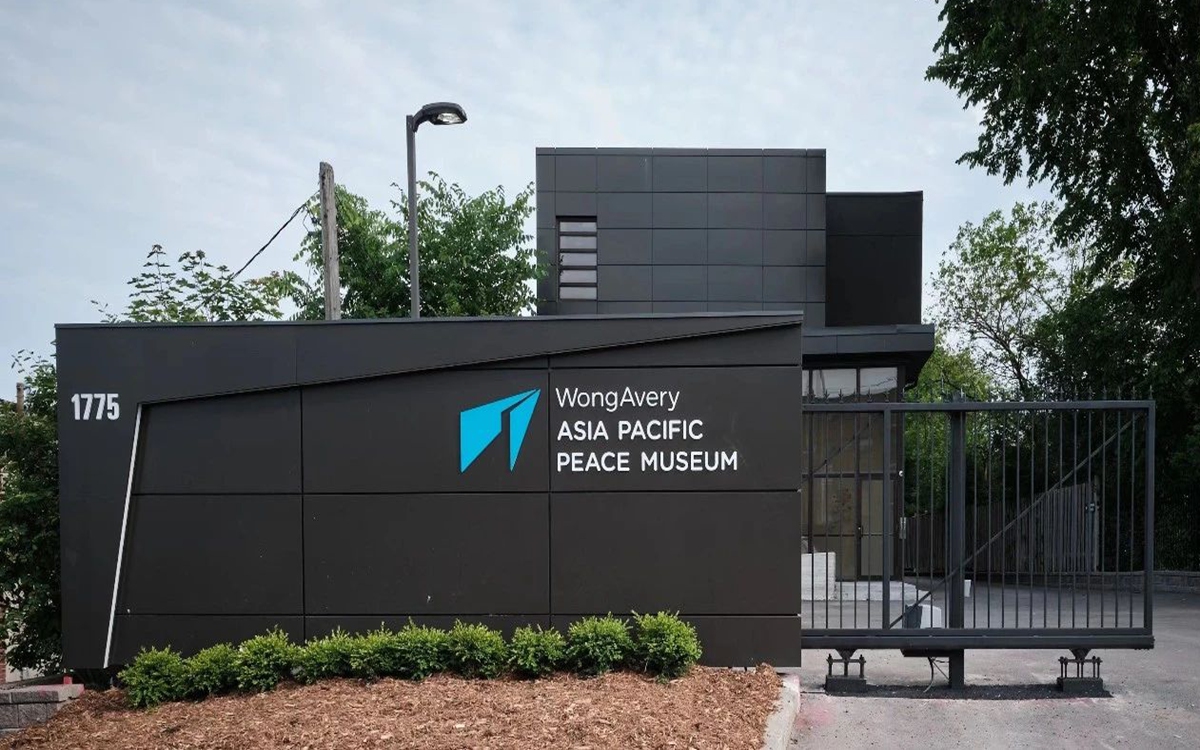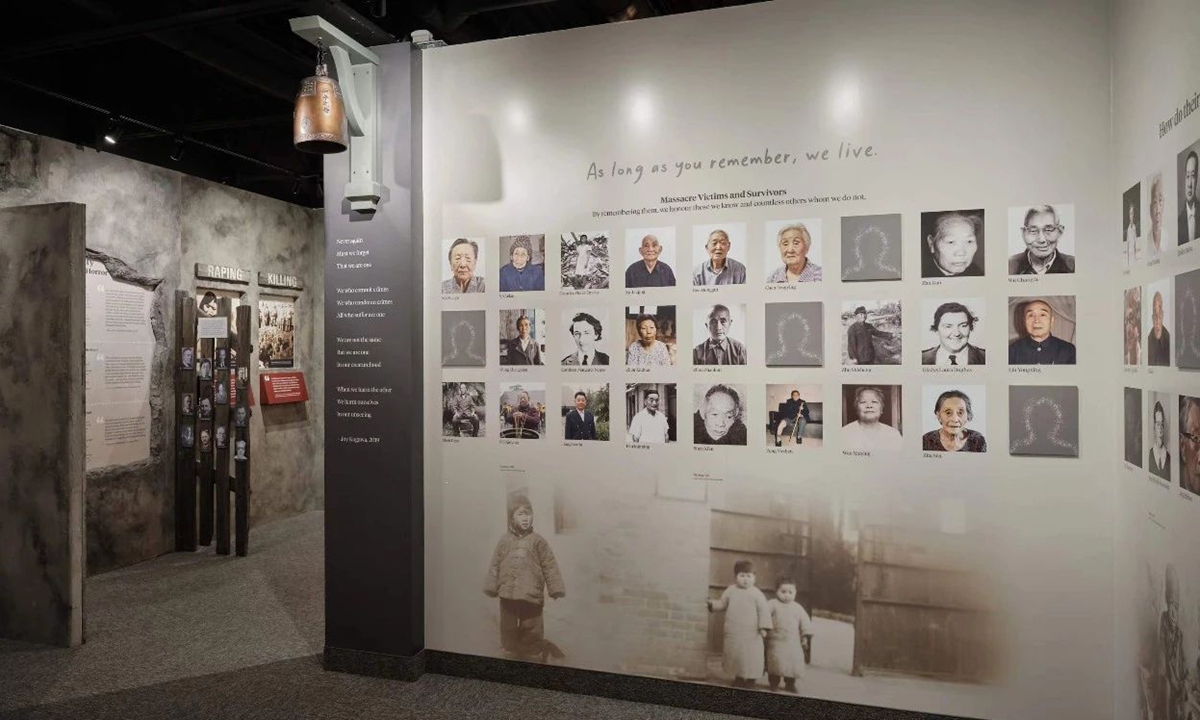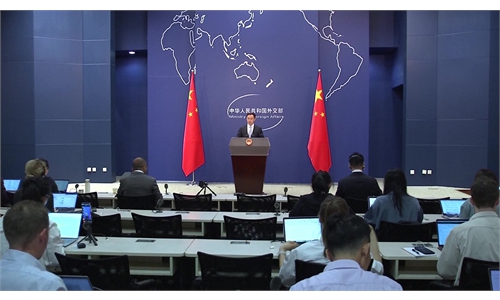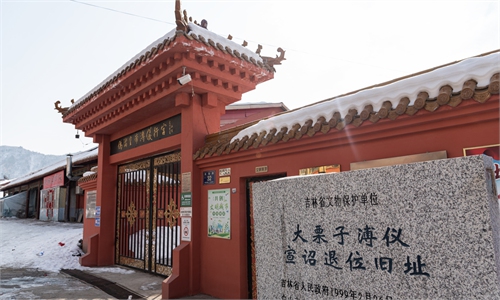Chinese expert highlights Japan’s historical revisionism, refuting Japanese lawmakers’ spurious accusations targeting Toronto-based peace museum

Photo: screenshot from Website of Asia Pacific Peace Museum
In response to Japanese conservatives who reportedly made false accusations against a Toronto-based peace museum commemorating World War II (WWII) in Asia—claiming it "distorts history" and "harms Japan's international reputation" — a Chinese expert stated that the Japanese right-wing's allegations essentially constitute an attempt to craft a new historical narrative, undermine the post-WWII international order and promote historical revisionism. Such actions not only distort historical truth but also inflict deep emotional wounds on people of victimized nations, the expert noted.
Da Zhigang, director of the Institute of Northeast Asian Studies at the Heilongjiang Provincial Academy of Social Sciences, told the Global Times on Wednesday that the exhibitions reflect wartime realities, exposing the brutality and inhumanity of the war while honoring victims' memories and promoting peace. As the country that suffered most severely from Japanese aggression in Asia, China endured immense casualties and destruction — atrocities so extensive that no exhibit could fully capture their horror, Da said.
According to its official website, the Asia Pacific Peace Museum is operated by a Canadian-Chinese organization Alpha Education - a non-profit and registered charity in Canada that promotes a critical-historical inquiry of WWII in Asia that contributes to peace and reconciliation. The museum says it serves to remember WWII in Asia, as do museums which commemorate WWII in Europe.
According to the museum, the painful experiences of the millions were absent, overlooked and almost forgotten; as with the understanding of the reasons why and how Japan decided and engaged in a war of aggression. While there are millions of people and their families who had suffered the most intense human tragedy, there are many who desire this war to remain forever lost, not to recognize such atrocities even happened, according to the website of the museum.
"Understanding of past human atrocities help us learn from past wrongs and their historical and legacy harm; younger generations will be inspired to be active actors in peace building," said the museum.
The museum set featured galleries such as "Scourges of War - Violence Against Humanity" which showcases historical crimes committed by the Japanese military including the Nanjing Massacre, "comfort women" and biological and chemical warfare by the Japanese military including Unit 731.

Massacre victims and survivors Photo: Website of Asia Pacific Peace Museum
The website emphasizes that "All contents and curation of the exhibits are grounded on research and independent from influences of any stakeholders or governments."
However, according to South China Morning Post (SCMP) on Wednesday, conservatives in Japan are urging their government to take action against the museum. They claimed that the museum "presents a solely Chinese perspective" on the above-mentioned historical events, "while ignoring historical evidence and explanations from the Japanese side."
SCMP reported that Masahisa Sato, a lawmaker with the ruling Liberal Democratic Party, has twice raised the issue in Japan's upper house of parliament, claiming in April that "if historical issues are not addressed seriously, then it will be extremely difficult to change perceptions."
Japan's Sankei Shimbun reported that during the Japanese House of Councilors' Committee on Foreign Affairs and Defense on May 27, in response to Sato, Japanese Foreign Minister Takeshi Iwaya claimed "We have confirmed instances where displays employed extreme language and expressions that significantly deviate from historical facts." Iwaya noted "The appropriate level, timing, and method of engagement will be determined based on what proves most effective and suitable."
Da praised Canada's grassroots efforts to expose wartime crimes and advocate peace, noting the urgency of preserving historical truth as firsthand witnesses pass away. Such initiatives, whether by private foundations or volunteers worldwide, deserve support, and the Chinese people should give them thumbs-up.
Regarding right-wing's attempts to whitewash history, Da argued that denying Japan's perpetrator role and challenging historical exhibitions are fundamentally efforts to rewrite history, reject the postwar order, and advance revisionism — actions that distort facts and reopen wounds.
According to Nikkei Shimbun, Japanese Prime Minister Shigeru Ishiba made remarks at Nikkei Forum "Future of Asia" on May 29, asserting that "We must actively seek to learn from these painful memories of suffering and the lessons of history." He emphasized Japan's postwar commitment to consistently follow the path of a peaceful nation, grounded in its determination never to repeat the horrors of war. "This resolve will remain unchanged going forward," he said.
In response to Ishiba's remarks, Chinese Foreign Ministry spokesperson Lin Jian said on Wednesday that China attaches importance to his words. Lin emphasized that a correct perception and attitude towards history and concrete actions that demonstrate reflection on and apology for the history of aggression are important premises for Japan to rejoin the international community after WWII. They matter to the political foundation of China-Japan relations, to Japan's relationship with neighboring countries and to Japan's global image.
We hope Japan will deeply reflect on its historical crime, fully learn the lessons and, out of a sense of responsibility to history, to the people and to the future, make a clean break with any move that seeks to whitewash or cover up the history of aggression. We hope Japan will stick to the path of peaceful development, and earn through its actions the trust of its Asian neighbors and the international community, Lin stated.




